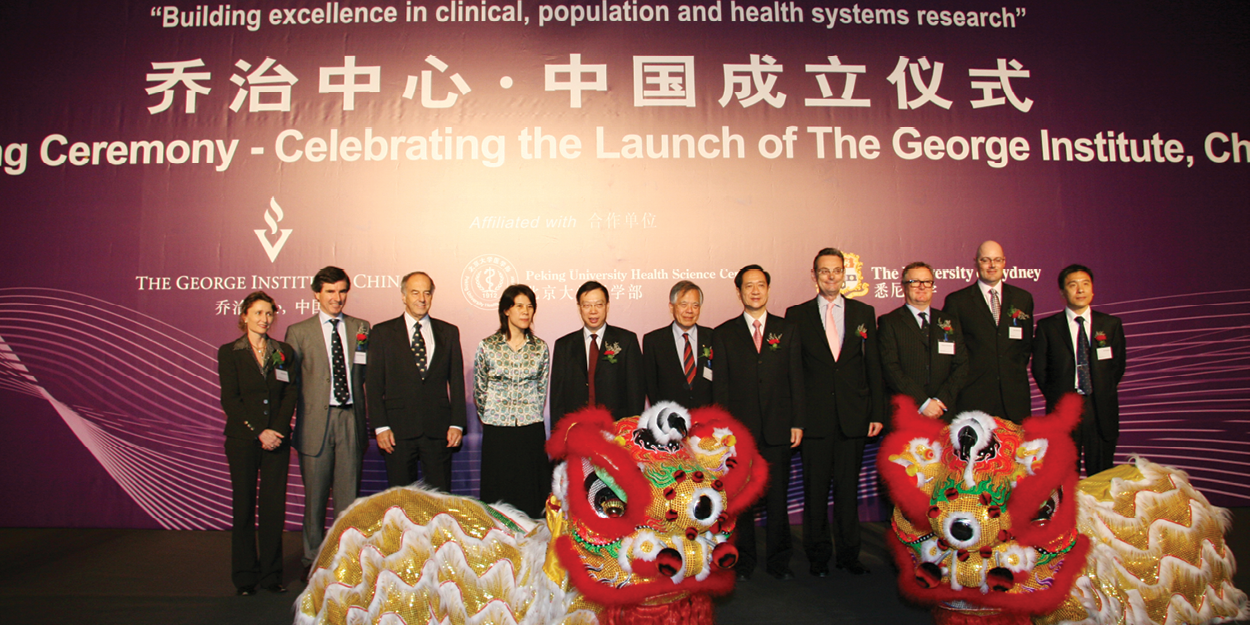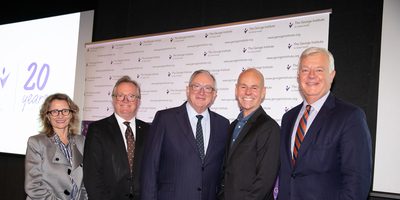
20 years of partnerships
Thanks to the foresight of the Institute’s founders, researchers like Professor David Peiris can today draw on a vast global network to help overcome some of the toughest health challenges at home – and overseas.
Professor David Peiris joined the Institute in 2006 as a PhD candidate researching how to improve the quality of care in Aboriginal and Torres Strait Islander health services.
A pivotal step in the Institute’s vision was realised soon afterwards, with research offices opening in India and China – where both countries faced massive chronic disease crises.
Thirteen years on, David is a leader in health systems science and Director of the Institute’s Global Primary Health Care Program, helping to discover ways to deliver better care to people in complex and often under-resourced health systems.
“I don't think I appreciated at the time what a strong and visionary move establishing research hubs in China, India and the UK was,” says David. “In building large-scale research programs, leadership from within the countries in which we are working is essential. This helps to ensure our work is well-designed, locally responsive and underpinned by strong regional relationships.”
Today, David and the team regularly connect with likeminded experts around the world, and the Institute is affiliated with UNSW Sydney and has collaboration with Imperial College London and Manipal Academy of Higher Education in India .
Other multilateral agencies and key global and regional stakeholders are regularly engaged to increase the impact of the Institute’s research on policy and practice and ensure it has real consequences for those most susceptible to chronic diseases, injuries and inequity. This includes various government bodies, international groups such as the Global Sepsis Alliance, NCD Alliance, Child Health Initiative, European Global Health Research Institutes Network, Taskforce on Women and NCDs, among others.
These relationships simply didn’t exist in the Institute’s early years.
More recently, a priority has been expanding such global partnerships, participating in multilateral meetings and consultations, and delivering evidence-based advocacy campaigns to impact global commitments driven by the United Nations, the World Health Organization, and others towards the Sustainable Development Goals set by the UN General Assembly in 2015.
Such a global approach now provides countless opportunities for knowledge exchange.
For example, research David undertook during a fellowship in the US examined positive changes to the health system under Obamacare. These new models of care are gaining traction internationally and David is investigating how similar models could be deployed in Australia to make healthcare services both more affordable and of high quality.
Another exciting focus for the health systems team has been discovering ways to overcome doctor shortages in resource-constrained environments such as India. Community health workers with low levels of schooling have been successfully supported to perform some of the doctors' duties. This has provided further learnings on how best to deploy multi-skilled primary health care teams to deliver services traditionally undertaken by doctors.
David continues to collaborate with Aboriginal Community Controlled Health Services on many health services research projects. This collaboration model helps to ensure that the research is culturally safe and relevant. The models of care used in these services has inspired ideas for how co-designed studies could work effectively in other settings such as in rural China.
“I see addressing health needs everywhere as being a universal right, but the solutions play out differently within and across countries, whether I’m in my role as a doctor in a clinic in downtown Sydney or researching in a remote health clinic in India,” says David.
“Nothing good happens in a vacuum and our work is really about partnerships. I think in the next 20 years we'll be cementing much stronger collaborations across the spectrum from grassroots local organisations through to global players like the United Nations, World Health Organization and World Bank, and becoming even more active contributors to the global health agenda, collectively solving great health system challenges.”
Celebrating 20 years: David’s top moments
- ‘Can do’ attitude: “Ever since I’ve been with the Institute, the mindset people have is to get on with the job, stay focused on the big goals and not to get too bogged down in minutiae.”
- Global collaboration equals big impact: “Our strong international presence means that when something is learned in one region there is potential to disseminate lessons to other regions. It increases the possibility that other researchers and policy-makers elsewhere in the world can pick up on a learning and apply it in their country.”
- Tackling the great unknowns: “With regards to big questions like ‘Does digital technology strengthen health systems?’, we've got research that says ‘Yes’ and research that says ‘No’. I think what the Institute has contributed is a more nuanced understanding that with complex questions come complex answers. In the future we will look to further understand how this complexity can be better understood and harnessed to improve health outcomes.”


